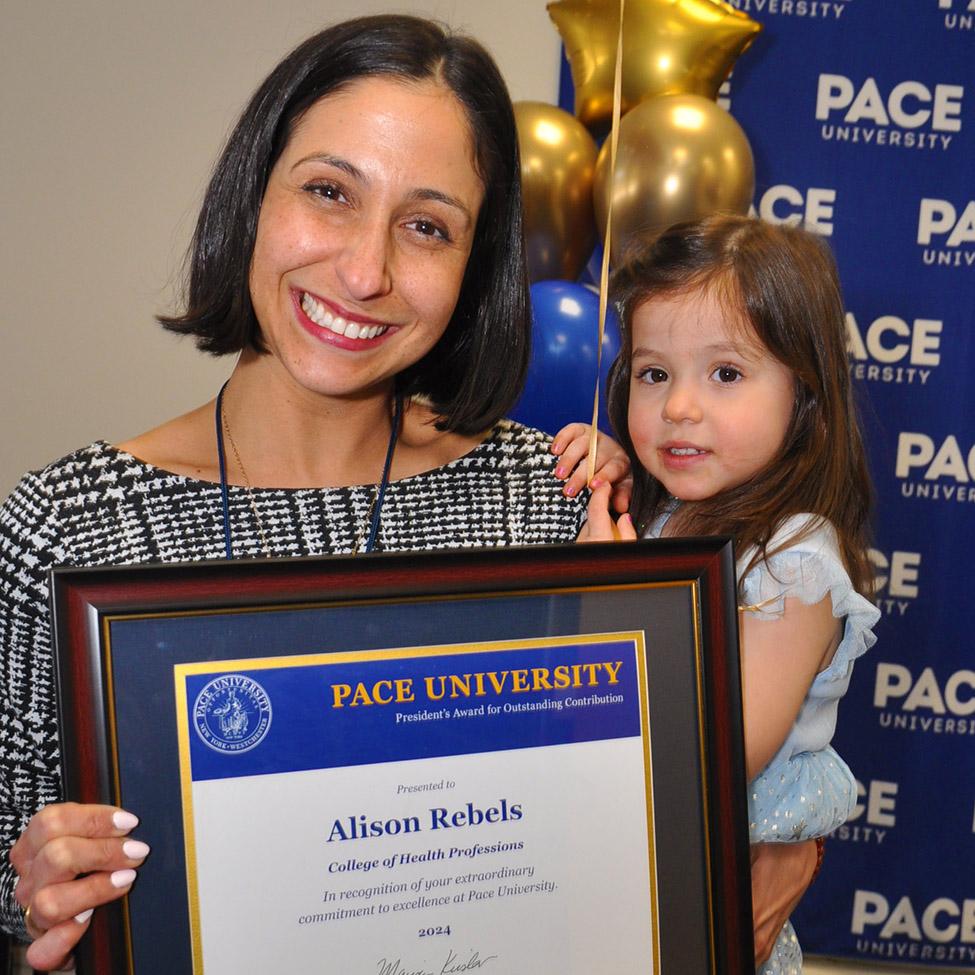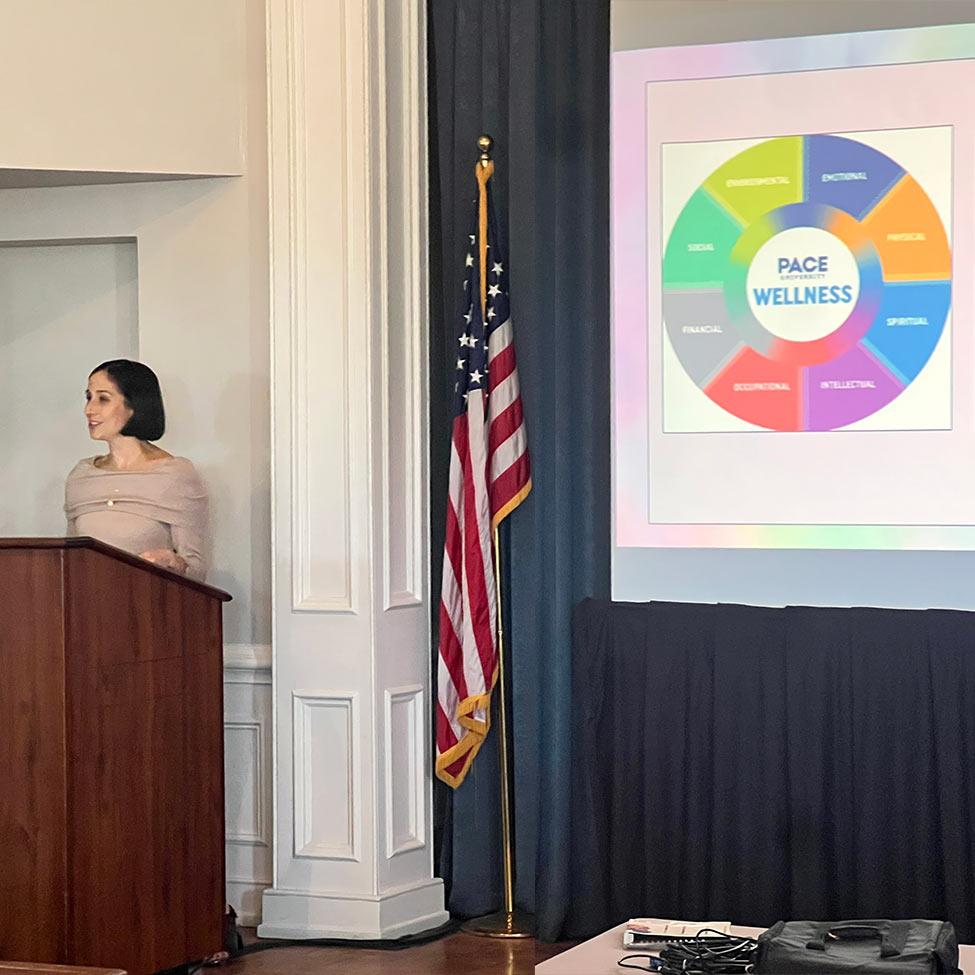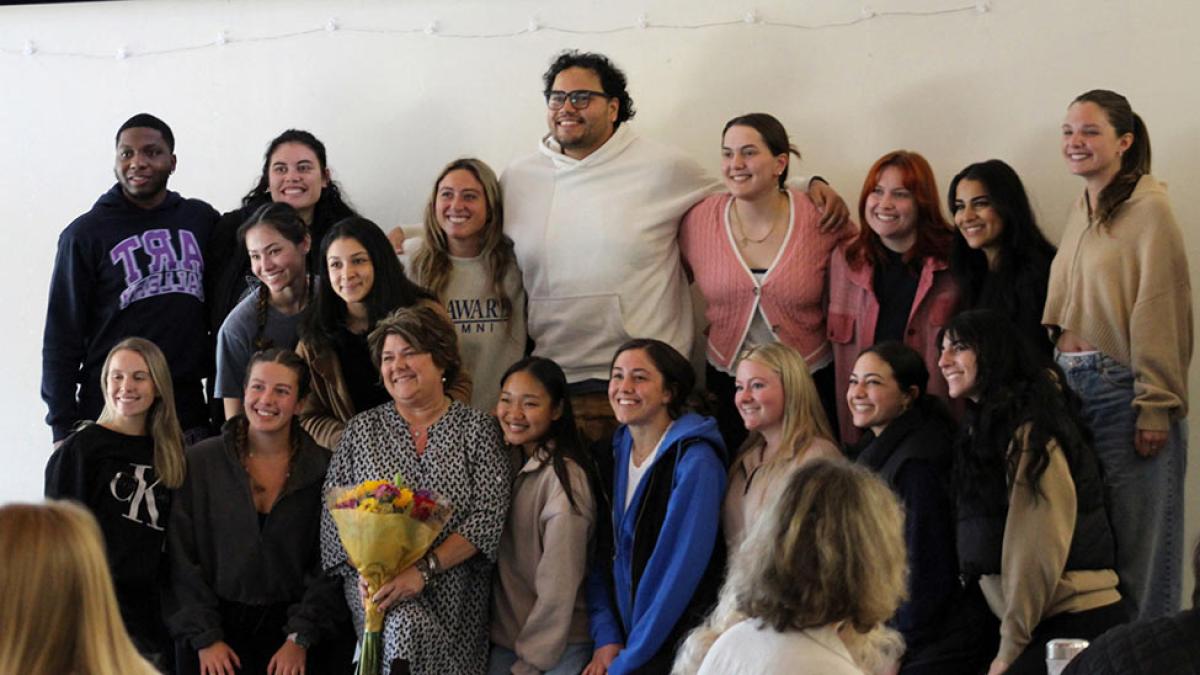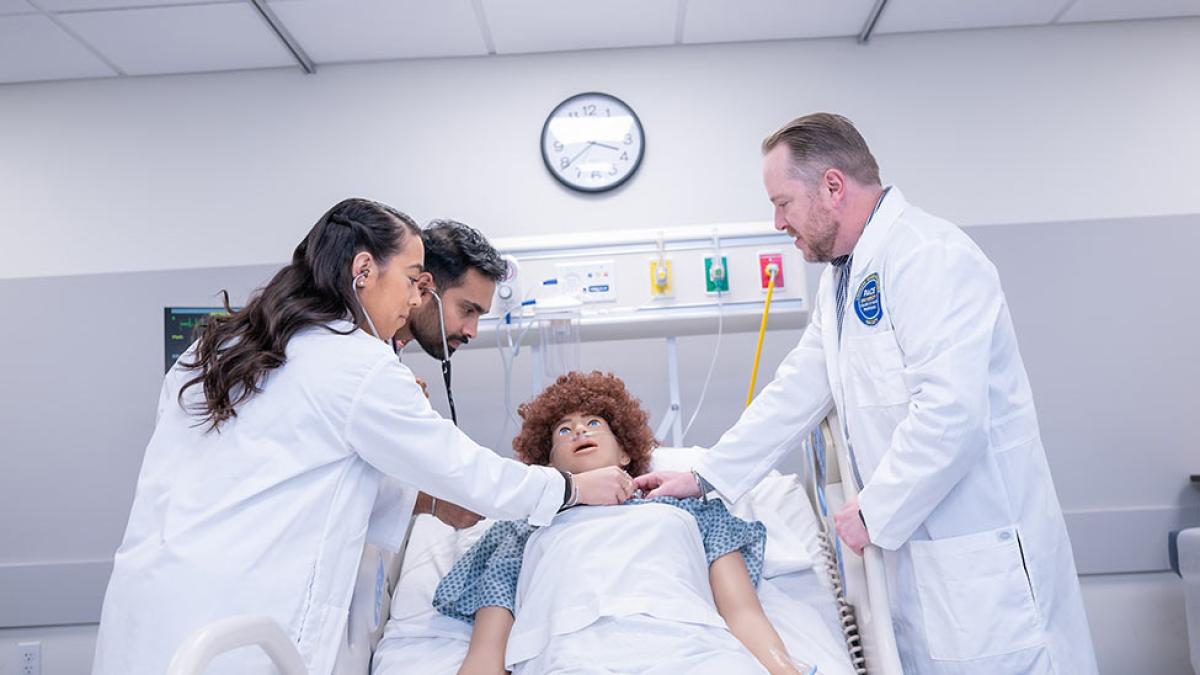
The Importance of Professional Development: Alison Rebels, OTD, MS, OTR/L

Alison Rebels, OTD, clinical assistant professor for the Occupational Therapy, MS program is a leader in her research on spirituality in Occupational Therapy (OT), and a highly involved member of the Pace community.
This past fall, Alison had the opportunity to host a workshop at the annual New York State Occupational Therapy Association (NYSOTA) conference on her research to Pace students and other OT professionals alike. We connected with her to learn more about the presentation process, and the importance of passion.
How did you get involved with NYSOTA?
As my passion for OT has grown, so has my desire to dive deeper into the heart and core of the profession. I see members of NYSOTA as change-makers—individuals committed to lifelong learning, leadership in the field, and ensuring the continued success of our profession. It’s a mission I feel both a professional responsibility and a strong desire to be a part of.
Why do you think it's important as a healthcare professional to attend conferences/engage with professional organizations like NYSOTA?
So many reasons! Being a part of NYSOTA allows me to participate in the conversation regarding regulations, laws, and policies that benefit and shape the future of OT. NYSOTA membership provides access to numerous resources to help me stay informed about best practices and the latest trends within the profession. For example, NYSOTA offers Communities of Practice where occupational therapists (OTs) specializing in or interested in different niches of the profession can connect and collaborate.
By engaging with all that NYSOTA has to offer, including attending conferences, I reap the benefits of professional growth, valuable connections, and a deeper appreciation for the wonderful field of OT.
What is the process of presenting at a conference like?
Typically, you submit a proposal months in advance, outlining a detailed description of your presentation topic and objectives for your session. If accepted, you are assigned a session format, which may include participation in a poster expo, facilitating an informal conversation on the topic, leading a short course, or conducting a longer workshop.
During the conference, multiple sessions usually take place simultaneously, and participants can choose to attend the sessions most relevant to their interests. The atmosphere is generally professional, yet friendly, engaging, and supportive.

What did you present at the 2024 NYSOTA conference?
My presentation was titled “The SpiritualOT Journey: The Effectiveness of an 8-Week Workshop on Increasing Student Understanding of the Role of Spirituality in OT Practice.” I created and facilitated The SpiritualOT Journey, a workshop for second-year Pace University Master of Science in Occupational Therapy (MSOT) students during the Summer 2024 semester. The curriculum covered the history of spirituality in OT, evidence-based practices, and, most importantly, self-exploration of concepts related to the human spirit—such as meaning, authenticity, interconnection, intuition, and mindfulness. It is only through self-exploration of our own spirit that we can truly understand the personal nature and depth of the spirit of others.
My research revealed that the workshop enhanced students' understanding of their own spirituality and that of others, deepened their awareness of its relationship with OT, and increased their confidence in incorporating spirituality into OT treatment.
What inspired your research for "The SpiritualOT Journey"?
As a holistic profession, OTs consider the mind, body, and spirit; however, there is considerable uncertainty regarding the role of spirituality in OT and how to incorporate spirit into our treatment with clients. Spirituality is very much within our scope of practice. A spotlight needs to be placed on spirituality within our profession, as research indicates that incorporating spirituality into client care enhances health outcomes, well-being, and life engagement. I experience these benefits in my own life as I explore and nurture my own spiritual wellness. For me, this looks like journaling, mindful drawing, and yoga to quiet my mind and connect with my deepest, truest self.
By addressing the spiritual wellness of our clients, occupational therapists can support them in accessing inner healing, discovering meaning in life, living with purpose, and remaining true to their values and beliefs.
—Alison Rebels, OTD
To me, that is a beautiful professional role and responsibility that must not be neglected.
What is the biggest take away you hope students and OT professionals will have from your presentation?
I hope that those who attended my presentation left with a passion to advance the conversation regarding the importance of considering spirituality within OT and all areas of healthcare. I hope attendees left with an appreciation for the beauty of spirituality as a topic that is universal to humans, yet so deeply personal. One’s spirituality may be religious in nature, or it may not. It may be related to connectedness with a higher power, or to a connection to self, others, or nature. It may be related to one’s search for meaning, a motivating force, or a worldview. It is vital to consider our clients' spirituality and how it may act as a source of hope, comfort, purpose, and/or strength, particularly during times of challenge and transition.
Has your research topic influenced any of your teachings at Pace?
Yes! I created The SpiritualOT Journey and can’t wait to continue growing the program while learning alongside students and colleagues who embrace the importance of considering the mind, body, and spirit in healthcare.
Most recently, you were recognized with a Pace University President’s award. How does that feel?
I am deeply honored to be selected as a recipient of the 2024 President's Award for Outstanding Contribution. I’m so proud to be part of the Pace University community, and I am truly grateful for the opportunity to share my knowledge, passion, and heart with students who will go on to shape society, culture, and the world to come. As future healthcare professionals navigating both expected and unforeseen challenges, my wish is that students always return to the reason they chose this path—one most often rooted in their heart and their deep desire to support the healing of others.
Any additional details you'd like to share?
Special thanks are given to Dr. Beau Anderson, Dr. Sophie Kaufman, Dr. Jennifer Tokash, and Emmy Vadnais, OTR/L, who greatly enriched the workshop's content.
If you are interested in discussing this topic further, I would love to connect at arebels@pace.edu!
More from Pace
Jennifer Tokash, OTD is the academic fieldwork coordinator, and a clinical associate professor for the Occupational Therapy (OT), MS program.
We connected with her to learn more about her experience with NYSOTA, the importance of leadership, and her advice for students on their professional journeys.
Jason Slyer, DNP, RN, FNP-BC, CNL, FNAP, FNYAM is a family nurse practitioner (FNP) with over 20 years of experience in cardiac and chronic disease management. As a doctor of nursing practice (DNP)-prepared nurse practitioner, he is a leader and expert in evidence-based practice and translational research with scholarly interests in the area of shared decision-making in the promotion of person-centered care practices.
We connected with him to get his perspective on the LSN’s graduate programs as both a professor and former student.
The MSOT 2025 cohort took a field trip to Family of Kidz Sensory Gym in Harrison, NY, as part of their Pediatric course. The students learned about sensory integration in lecture and then participated in experiential learning to reinforce concepts and practice skills. This is learning. This is fun. This is occupational therapy and we love it! Happy World OT Day!


